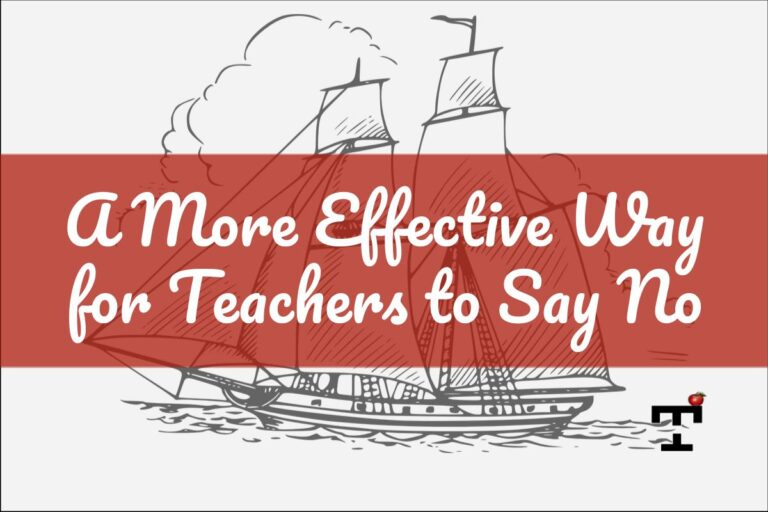For many reasons, a lot of teachers have a hard time saying no. People who go into teaching want to help others. We often satisfy others’ needs over our own. Many teachers were good students, which often means they were rule followers. Many of us tend to be conformists. When we see other teachers joining committees, we have a difficult time saying no. We also know our schools are strapped for cash, so we agree to work for free, knowing there just aren’t enough people to do everything that needs to be done. We don’t like disappointing others. We fear what will happen if we don’t say yes. We don’t want to be perceived as lazy. Knowing this, some administrators lay on guilt trips and appeal to our selfless natures. It’s for the kids, they remind us.
No matter the reason, many teachers end up agreeing to join committees, attend after-school parent nights, tutor students before class, organize book rooms or science materials, or agree to be their school’s union representative even though they don’t really want to.
They recognize that there are trade-offs. By stretching themselves thin, they’re unable to do anything as well as they would like. They become less prepared teachers, which leads to less effective teaching, which leads to greater stress, more exhaustion, and a higher likelihood of burning out and quitting. Having said yes to every request, they look around one day and wonder where all their time went. How come they can’t get anything done? Why are they so tired all the time?
It’s important for teachers to say no. Teachers need to say no a whole lot more often than they do. But how do you say no respectfully, yet firmly? How do you say no in a way that will lead others to respect you instead of question your dedication, collegiality, and work ethic?
I have found that the best way to say no starts with two little words: I don’t.
I Can’t
Many people, when they say no, start with, “I can’t.” They then give reasons explaining why they can’t.
“I can’t be on that committee because it meets at 7:00, and I can’t get to work until 7:30.”
“I can’t work on that report because I just don’t know enough about what was done.”
“I can’t chaperone that dance because it’s the same night as my son’s football game.”
The problem with “I can’t” is that circumstances can change. The meetings can be moved to after school. You’ll be given the information you need to write the report. You can’t work this dance, but you can work the one in the spring when it’s no longer football season. “I can’t” says to the person requesting your involvement that, while you can’t do this thing this time, you might be able to do it next time. It invites future requests for your time. If you really don’t want to do the thing, it demands that you create even more explanations for why you can’t. And when you always have a reason for getting out of things, it looks like you’re making up excuses. People don’t respect that.
Instead of saying, “I can’t,” start saying, “I don’t.”
I Don’t
When teachers say, “I don’t,” they send the message that they are in control of their lives. They have rules for how they live. They know what they want. They’re committed. “I don’t” is non-negotiable. It establishes boundaries, instead of just providing what could be perceived as an excuse to get out of doing extra work.
“I don’t” is rare, and that is why it will lead to more respect. Most people don’t really know what they want. They don’t take principled stands. They fail to proactively control their lives. They’re like driftwood, caught up in a current, tossed this way and that by circumstance, instead of captains of their own vessels, intentionally navigating their lives toward predetermined destinations. People respect those who know what they want.
The next time you’re asked to do unpaid work, say, “I’m a professional, and I don’t work for free.”
When asked to join a paid committee you have no interest in, say, “I don’t take on projects that have the potential to diminish my effectiveness in the classroom.”
You might even develop a mantra for any opportunity that doesn’t appeal to you: “I don’t do things that don’t further my goals or excite me.”
“I don’t” works for establishing boundaries in all areas of your life. Once you use it to say no, move on to letting others know what you will and won’t do.
“I don’t read work emails on Sundays.”
“I don’t come into the classroom on weekends.”
“I don’t allow toys in my classroom.”
Making these two little words a part of your lexicon will head off future requests for your time. They will force you to decide what kinds of things you will and won’t do. They will require you to analyze your own goals and priorities. And they will result in more respect from others. Try it out this week, and let me know how it goes in the comments.

No comments:
Post a Comment